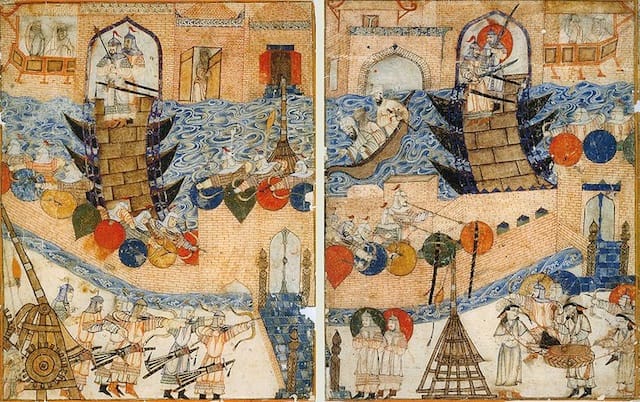Mongol Conquest and Genghis Khan's Squandered Cultural Legacy
OAKLAND, California — Nobody knows where Genghis Khan's body is, but there's plenty of evidence of his DNA. A staggering report noted that some 16 million people can thank the Khan for their heritage. That's roughly 1 in 200 men in the world.

OAKLAND, Calif. — Nobody knows where Genghis Khan’s body is, but there’s plenty of evidence of his DNA. A staggering report noted that some 16 million people can thank the Khan for their heritage. That’s roughly 1 in 200 men in the world. The body of the warrior who built the world’s largest land empire is hidden somewhere in his former territories, but it lives on in some fashion through millions of descendants.
It’s been interesting to follow the epic search for his body, which he famously wanted kept hidden. Unlike the ceremonial burial grounds of everyone from Egytian pharaohs to American presidents, the Mongolian Empire took great pains to hide their leader’s body:
Legend has it that he was buried in a place so secret that the funeral party killed everyone they encountered on their way to the site and were in turn massacred by another army to keep his burial grounds a secret. Over the centuries, innumerable archeologists from across the globe have tried — and failed — to find Khan’s tomb.
According to the Harvard Business Review, a crowdsourced effort is helping at least one researcher narrow down possible locations of the body. Participants have reviewed images and helped identify ancient structures. Researcher Albert Yu-Min Lin then visited the short list of these sites, creating his own shorter list of possible targets.
What’s most striking about this search is that it’s also helping us understand more about the Mongolian Empire’s history. A recent article in Der Spiegel noted that Genghis Khan’s son, Ögödei, may have wielded more cultural influence than his father: “Historians see the youngest son as an ingenious reformer. He introduced paper currency and even established a postal system. But Ögödei’s greatest accomplishment was building a city on the steppes that could be used to administrate his ostensibly ungovernable kingdom of nomads.”
With RZA tapped to direct a Genghis Khan biopic and the popularity of Sergei Bordrov’s Mongol, our image of the empire continues to focus on its conquest rather than its culture. But as the search for Genghis Khan’s tomb continues, perhaps we’ll learn more about its legacy in contemporary society.





